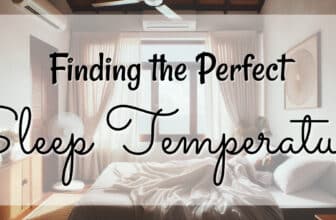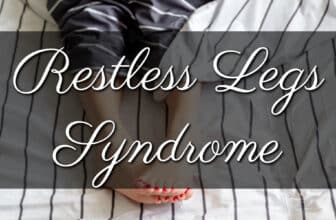If you’re an athlete, you already know that working out directly impacts your body. Now, on one side, aerobic exercises such as cycling, walking, jogging, and running can dramatically improve the quality of your sleep.
In addition to helping you reduce the risks of developing sleep disorders, working out keeps your body healthy by reducing the sparks of certain lifestyle diseases such as obesity, cardiovascular diseases, diabetes, premature thinking, and depression, among others.
On the other hand, sleep plays a pivotal role in giving your body the time to recover, converse its energy and repair/rebuild the torn muscles consumed during hard workout sessions.
So, what does this mean? Well, we’re saying that sleep and fitness have a direct relationship that lets them work together to keep you healthy. With that said, this short guide will discuss some key pointers that will help you understand how sleep affects your fitness.
Sleep Aids in Repairing Torn Muscles
Lack of enough sleep can cause mild health consequences to office workers, such as losing concentration and feeling moody at the workplace. When it comes to athletes who perform high-intensity workouts regularly, lack of enough sleep can cause mild and severe health consequences.
Earlier on, we had mentioned that enough sleep helps the body to restore the already used-up body energy supply. Adequate sleep helps the body to restore your body’s immune and endocrine systems.
Now, the main purpose of these two systems is to create and spread key performance hormones such as testosterone and human growth hormone that increase after working out. In addition, these hormones help regulate proper brain function, meaning you won’t feel drowsy, depressed, or confused during the day.
Finally, proper sleep increases protein synthesis and mobilizes free fatty acids that provide the body with enough energy to repair torn muscles broken down during high-intensity workouts.
Sleep Helps Metabolism
We’re all aware that working out burns calories. We’re also aware that metabolism is the number of calories the body burns to stay active. Now, metabolism comprises two main processes: anabolism (build-up) and catabolism (break-up).
In every 24 hours, the body burns calories in a process known as Total Daily Energy Expenditure (TDEE). Now, the resting stage, which happens when you’re sleeping, is known as the resting expenditure (RMR). This phase makes up about 70% of your TDEE, meaning when you’re asleep, the body boosts the anabolism stage allowing calorie buildup.
When the first stage is through, the second phase begins: the catabolism or break-up stage. In this phase, the body burns calories, which break down into energy used for fueling your aerobic exercises during high-intensity workouts.
After working out, your body will again need some rest. Here, apart from promoting the anabolic phase, enough sleep, especially during the non-rapid eye movement sleep (nonREM), will give the body enough time to deal with damages done to the cells after the release of free radicals.
So, to cut the long story short, adequate sleep promotes the buildup of calories which can be used by the body to promote intense workouts.
Sleep Loss Can Cause Weight Gain
Weight gain is one key factor that can generally affect your fitness. On the other hand, weight has a direct relationship with sleep. This means that the amount of sleep you get can directly influence your overall fitness.
Although other factors such as genetics, health conditions, and depression can influence weight gain, sleepiness is among the leading factors that influence weight gain. If you’ve ever had a sleepless night, you’ll most likely be ravaged by hunger the following morning due to the release of certain appetite hormones.
The level of appetite is usually influenced by the arcuate nucleus of the hypothalamus, which is influenced by two main hormones—the leptin and ghrelin. Now, the amount of sleep you get daily can directly influence the production of these two hormones.
When you get enough sleep, the hypothalamus activates the leptin hormone and suppresses the ghrelin hormone in return. What this means is that you’ll have the time to make a proper judgment on what you eat. Also, since this hormone suppresses your appetite, it encourages the body to expend energy which is good for your fitness, especially if you’re involved in high-intensity workouts.
On the other hand, if you’re sleep-deprived, the hypothalamus releases the ghrelin hormone that triggers feelings of hunger and increased appetite levels. Since your brain is unable to make reasoned decisions on what you eat, you’re likely to develop cravings for junk, fat, and sugar-laden foods. Finally, this means that you’ll end up eating more calories than usual, leading to weight gain.
Sleep Speeds Up Healing From Injuries and Illness
When you’re working out, you’re most likely to suffer from muscle injuries in one way or another. Luckily, studies have suggested that enough sleep can play a huge role in your healing process than even taking nutritious meals.
Now, when you’re asleep, there are a lot of things that happen within your body. One, your blood pressure drops to give your heart a break. Secondly, the demand for calories decreases, giving the body enough time to relax and prepare for the next day.
There’s a huge relationship between sleep and the immune system. When you’re asleep, the immune system takes over in high gear by releasing fighter cells that are responsible for repairing damaged cells and injuries within the muscles.
In addition to restoring damaged muscles, the fighter cells released by the blood cells counterattack harmful bacteria and viruses, protecting the body against infections and illnesses. So, if you’re at risk of getting various lifestyle diseases such as Type II Diabetes and Cancer, enough sleep can help fight these illnesses’ spark.
Sleep Helps with Motivation
The REM phase of your sleep directly influences the mental aspect of your performance, especially when it comes to fitness. As you already know, lack of enough sleep has many side effects, such as mood swings, poor focus, reduced blood circulation, and less motivation.
On the other hand, if you’re getting enough sleep, your body will likely feel more rejuvenated and ready to face a new day with enthusiasm. Although it’s not guaranteed that you’ll wake up each morning feeling energized, we can assume that you’re likely to feel more boosted and happy.
Now, according to a 2008 study at the University of Stanford, teenage athletes added more hours of sleep each night saw major boosts in their moods and vigor. They recorded improved race times and sprint times as compared to those deprived of their sleep.
With this report, it’s clear that a full night of sleep can help you exercise better as it helps you achieve peak athletic performance.
Sleep Affects Intensity
Are you looking to exercise more than usual? Then get more sleep. Now, what’s the relationship between sleep and intensity? When you’re sleep-deprived, the brain perceives pain, meaning the more tired you become, the more difficult a workout is.
So, when you’re performing high-intensity workouts, the brain sends a message that you’re tired and completely maxed out even when your heart rate and metabolic rate are normal. This means that lack of enough sleep will affect your intensity lowering your athletic performance.
Sleep Affects Accuracy and Reaction
Working out should improve your brain performance, accuracy, and reaction time. But, with a lack of enough sleep, your cognitive functions are generally lowered, making you less attentive and responsive. When working out, you’re also likely to experience visual cues and reduced accuracy.
Eye-hand coordination also gets affected, making it very dangerous to lift weights when you’re sleepy.
Conclusion
As we conclude, there’s a very huge relationship between sleep and fitness. These two tend to depend on each other. Prioritizing on sleep is one way of finding the right balance between cardio and high-intensity strength exercises. Apart from just taking nutritious meals, you need to prioritize on your sleep to give the body enough time to rest and reconstruct itself.
Now, some experts have advised athletes to time their workouts right. Working out before bedtime can come with mixed results that can vary from one person to another. To some, working out at night does not affect their sleep rhythms, while to others; this can overstimulate their bodies, causing sleeplessness.
On the other side of the coin, exercising often will help you get enough sleep to kick-start your morning with enthusiasm.
Is that all? Oh! There’s one more thing. Sleeping is not the only factor that affects your fitness. You need to be keen on what you eat as your diet can also directly influence your health. You also need to check your specific type of exercise as you can’t expect a beginner to start with high-intensity exercises.






